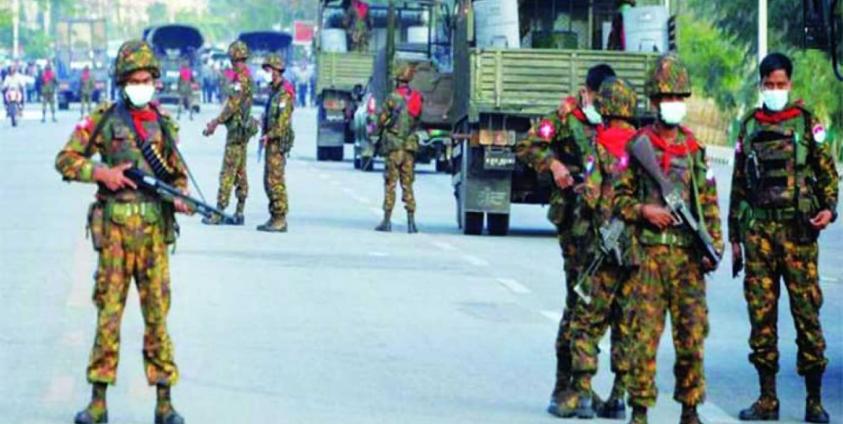Eyewitnesses report the Military Council's massive troop movement by road towards Lashio Township in northern Shan State.
On February 14th, a logistic convoy of the Junta consisting of 25 trucks was observed passing through Kyethi Township in southern Shan State, and it was heading towards northern Shan State, where a ceasefire had been established.
"The convoy journeyed from southern Shan State, making its way towards Lashio and Mongyai. Nearly all trucks were meticulously covered with tarpaulin sheets on their rear sides, and some trucks carried soldiers, with the total number potentially quite large”, a local told Shan Herald.
Despite the current temporary ceasefire in northern Shan State, locals express concern that hostilities may reignite after the Chinese New Year period.
"Concern looms over the potential resurgence of hostilities. Military Council troops, having regrouped in Lashio following losses in other towns, have shown increased activity since the Chinese New Year”, a military source in Lashio noted.
Following a third meeting in Kunming on January 10th and 11th, the Junta and the Three Brotherhood Alliance reached a ceasefire agreement under the Haigeng Agreement, facilitated by China's mediation.
On January 12th, the Three Brotherhood Alliance declared the key provisions agreed upon within the Haigeng Agreement, highlighting measures to prevent aggression between the two sides and to resolve disputes and clashes through dialogue.
However the Junta has failed to fully abide by the ceasefire agreement and continues to engage in one-sided acts of aggression in northern Shan State, according to accusations from the Alliance.
During 'Operation 1027', the Three Brotherhood Alliance managed to seize over 400 outposts and bases belonging to the Military Council in northern Shan State, along with gaining control of 20 towns.
Confronting a string of military setbacks, the Military Council resorted to enforcing conscription law, as a desperate measure to address manpower depletion, sparking public outrage.







